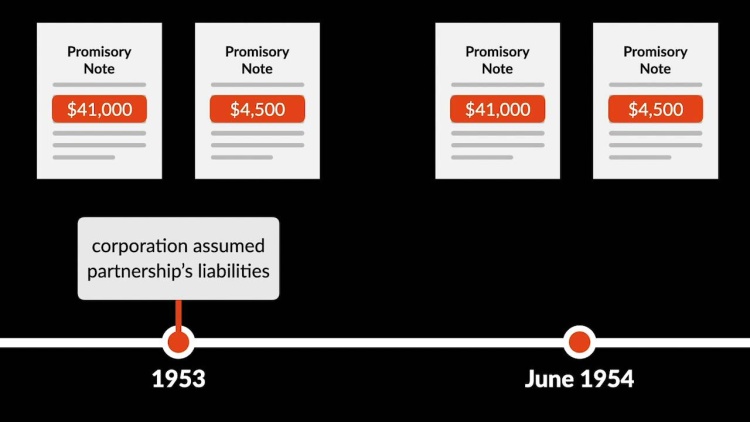Costello v. Fazio
United States Court of Appeals for the Ninth Circuit
256 F.2d 903 (1958)
- Written by DeAnna Swearingen, LLM
Facts
J.A. Fazio and Lawrence C. Ambrose (plaintiffs) were partners with B.T. Leonard in Leonard Plumbing and Heating Supply, Inc. Initially, Fazio contributed $43,169.61, Ambrose $6,451.17, and Leonard $2000. In the partnership’s last year before incorporation, the business had net sales of $389,543.72, which represented a net loss of $22,521.34. The company was not making ends meet. The partners decided to incorporate, and Fazio and Ambrose withdrew all but $2,000 of their initial capital contributions, leaving the company with $6,000 in total capitalization. The partnership issued promissory notes to each of them for the withdrawal amount. Upon incorporation, Fazio, Ambrose, and Leonard were each issued 200 shares of stock. Fazio and Ambrose became directors and officers. The corporation assumed the partnership’s liabilities. In 1954, the company went bankrupt. Fazio and Ambrose filed claims against the bankrupt estate, and the bankruptcy trustee, John Costello (plaintiff), moved the court to subordinate the claims to those of the company’s general unsecured creditors. At the hearing, expert witnesses testified that the company was undercapitalized at the time of incorporation. The company’s accountant testified that the promissory notes were issued to reclassify the capital as debt and avoid taxation. The accountant also testified that incorporation was done to protect Fazio’s interests. The bankruptcy referee concluded that the company was adequately capitalized. The referee also held that Fazio and Ambrose had not committed fraud or mishandled the business, or acted to benefit themselves at the expense of the company or its creditors. The referee refused to subordinate the claims. The trustee petitioned the district court for review, and the court affirmed. The trustee appealed to the United States Court of Appeals for the Ninth Circuit.
Rule of Law
Issue
Holding and Reasoning (Hamley, J.)
What to do next…
Here's why 908,000 law students have relied on our case briefs:
- Written by law professors and practitioners, not other law students. 47,100 briefs, keyed to 996 casebooks. Top-notch customer support.
- The right amount of information, includes the facts, issues, rule of law, holding and reasoning, and any concurrences and dissents.
- Access in your classes, works on your mobile and tablet. Massive library of related video lessons and high quality multiple-choice questions.
- Easy to use, uniform format for every case brief. Written in plain English, not in legalese. Our briefs summarize and simplify; they don’t just repeat the court’s language.





